Stretch reflex & Tendon reflex
By: HWC
Date Uploaded: 12/06/2019
Tags: homeworkclinic.com Homework Clinic HWC Stretch reflex monosynaptic ipsilateral intemeuron proprioreception Tendon reflex
• The stretch reflex is a response to the stretching of muscles. It is monosynaptic and ipsilateral. • Stretching stimulates receptors in the muscle spindle of the agonist (stretched) muscle. • One or more action potentials are generated by the receptors and propagate along the axon of the sensory neuron. • In the spinal cord, the sensory impulses directly excite a single motor neuron leading to the agonist muscle. •The sensory impulses also stimulate an inhibitory association neuron in the spinal cord. In turn, this intemeuron inhibits the motor neuron leading to the antagonist (opposing) muscle. • Reciprocal innervation results when the stretching (agonist) muscle contracts and the opposing (antagonist) muscle relaxes. • In addition, conscious proprioreception information is relayed to the cerebrum from the muscle spindle receptors. • The stretch reflex prevents injury due to overstretching of muscles. • The tendon reflex is a response to the contraction of muscles. • Tendon reflexes are polysynaptic and ipsilateral. • In the tendon of an agonist muscle, the tendon organ receptors are stimulated by contraction. • The stimulated receptors increase the rate of generation of action potentials that propagate along the sensory neuron axon. • The sensory impulses excite association neurons in the spinal cord, which then excite motor neurons to the antagonist muscles. • The sensory neuron also synapses with an inhibitory association neuron which sends fewer nerve impulses to the contracting muscle. • This reciprocal innervation provided by the tendon reflex causes the contracting (agonist) muscle to relax and the opposing (antagonist) muscles to contract. • Conscious proprioreception information is relayed to the cerebrum via nerve impulses from the tendon organ receptors. • The tendon reflex prevents injury due to excess muscle tension, or over-contraction.
Add To
You must login to add videos to your playlists.
Advertisement



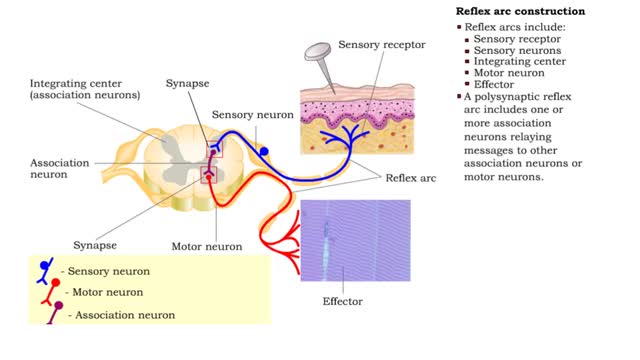
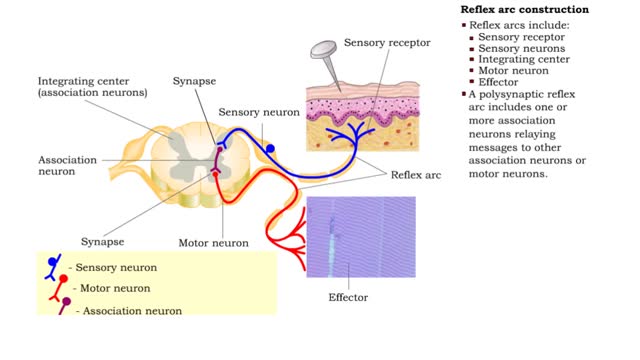
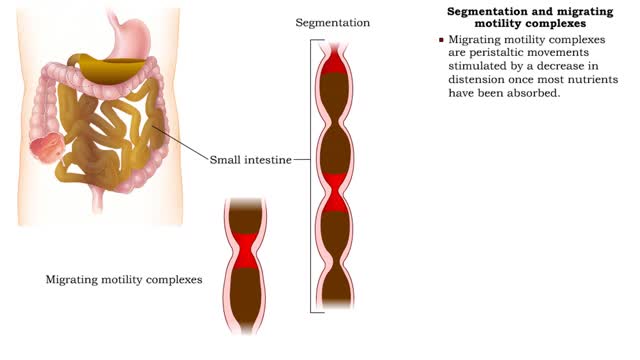
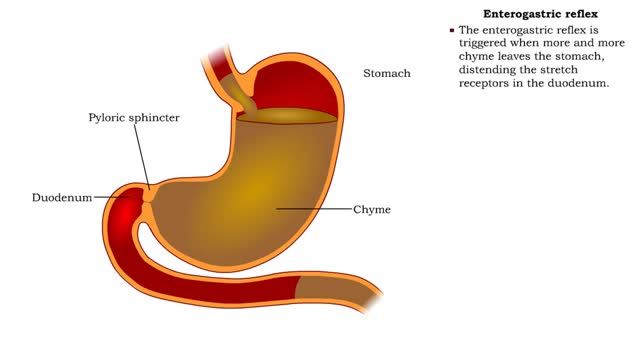
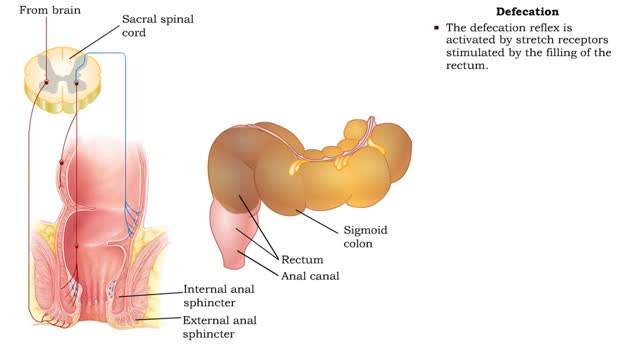
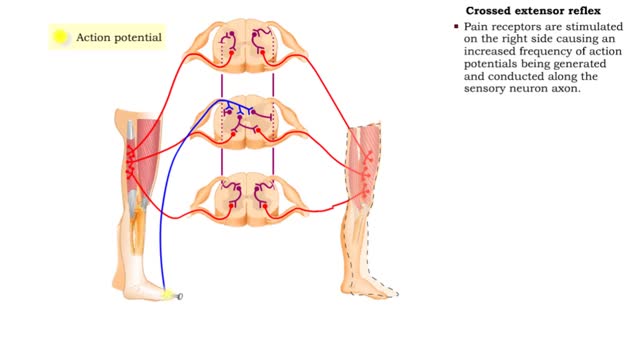
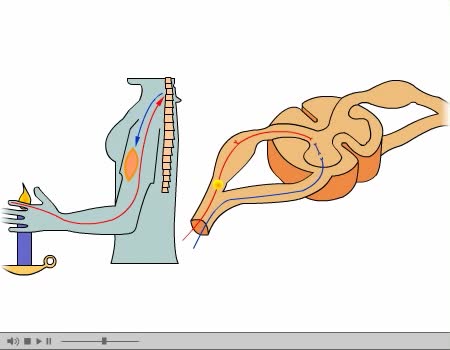
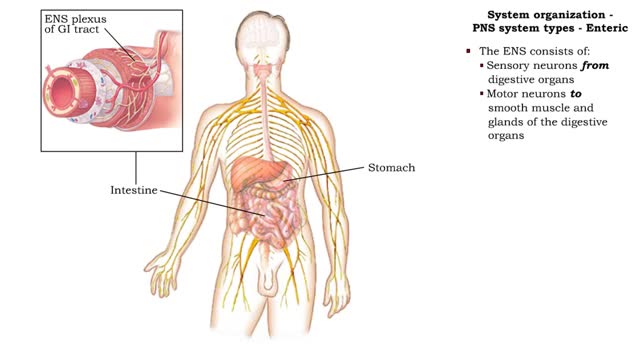
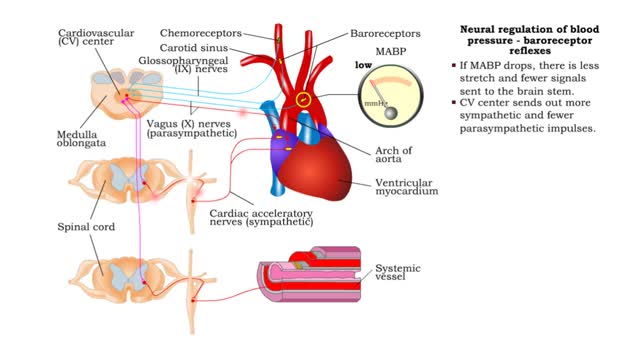
Comments
0 Comments total
Sign In to post comments.
No comments have been posted for this video yet.